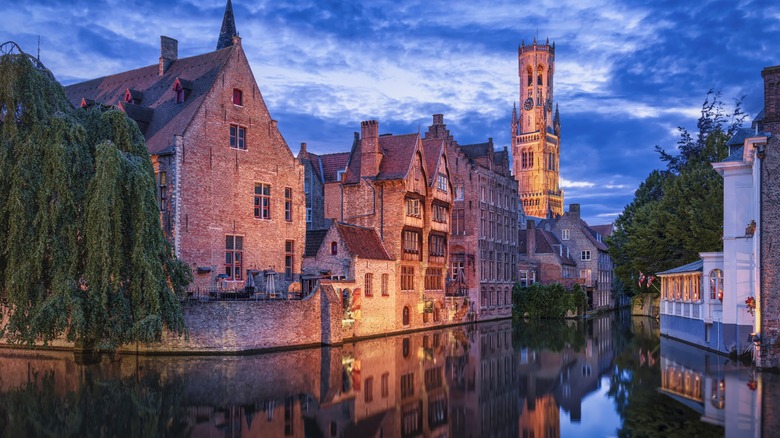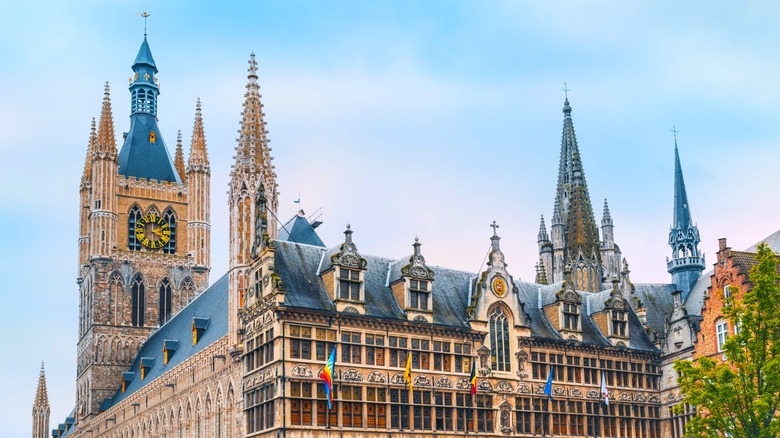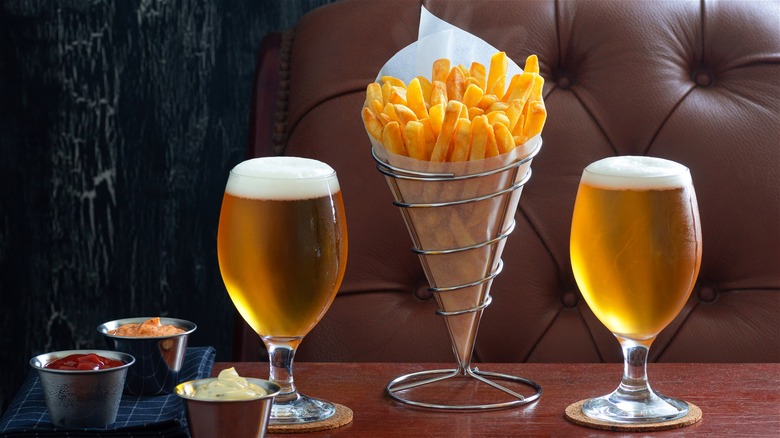Rick Steves Believes This Underrated Country Is Europe's 'Best Kept Secret'
Britain, France, and Germany have long overshadowed the tiny nation of Belgium. It was these countries, along with Austria and Russia, that recognized the country during the Treaty of London in 1839, and since then, Belgium has been caught in the middle of these nations' ugliest conflicts, namely the first and second World Wars.
Since the liberation of Belgium and Europe in 1945, generations of travelers have visited the cities of Bruges, Brussels, Liege, Antwerp, and the surrounding areas. Some would have been charmed by the unspoiled Medieval architecture and the world class beer; however, a sizable contingent has long accused Belgium of being not particularly bad, dangerous, or unpleasant, but really just rather... boring. Not true, according to Rick Steves.
In fact, Steves has called Belgium one of "Europe's best kept secrets" on account of many travelers overlooking the nation's diversity. As one Belgian told Steves, "We're a mix culturally: One-third English for our sense of humor, one-third French for our love of culture and good living, and one-third German for our work ethic." A continental crossroads of linguistics, culture, cuisine, and history, Belgium is very much among Europe's most underrated countries.
Centuries of trade, battle, history, and culture in Belgium
How can Belgium be boring when it has been Europe's battlefield time and again? Many of the continent's great conflicts have unfolded on what is today Belgian territory, including the Battle of Waterloo in 1815, Battle of Ypres in the First World War, and the Battle of the Bulge 30 years later in the Second World War.
There are numerous museums and landmarks honoring Belgium's catastrophic history. The In Flanders Fields Museum in Ypres is one of Europe's leading museums commemorating the First World War. Located in the imposing Cloth Hall — which was destroyed by artillery fire during the conflict — the museum charts the German invasion of Belgium week-by-week, providing a detailed insight into the war's opening months.
Belgium's status as a continental crossroads began not with war but with trade. The region's mercantile success gave rise to numerous centers of commerce and culture, namely Bruges, which today possesses some of the finest Medieval architecture in all of Europe, as well as a breadth of beer bars and carnivorous restaurants. The city is within easy reach of Brussels or can be approached from the sea, giving visitors another reason to consider a European river cruise.
Belgium offers frites, meat, and possibly the best beer in the world
Belgium has one of the most complex and esteemed beer cultures in the world. Arrive at a cafe in Bruges — one of Rick Steves' favorite cities — and you will be presented with an entire beer menu offering many styles, including abbey beers, witbiers, lambics, and dubbels, tripels, and quadrupels, which range from 9.1-14.2% ABV.
In total, Belgium produces around 1,500 beer styles, and they pair exquisitely with the country's favorite foods, namely fries or frites, which so impressed U.S. soldiers during the Second World War that they took the recipes home with them, beginning America's love affair with "French" fries — while the origin of the name isn't known, some people believe U.S. troops often confused France and Belgium.
Belgian food doesn't end there, as this country has terrific options for culinary travelers. Try Waterzooi, a creamy stew popular in Ghent served with either chicken or fish. Another popular dish are crevettes grises — gray shrimps — which are served in many different forms including indulgent, deep-fried croquettes. For perhaps the very best beer meal, order carbonnades flamandes, which is a hearty beef stew cooked in beer and served with fries.


